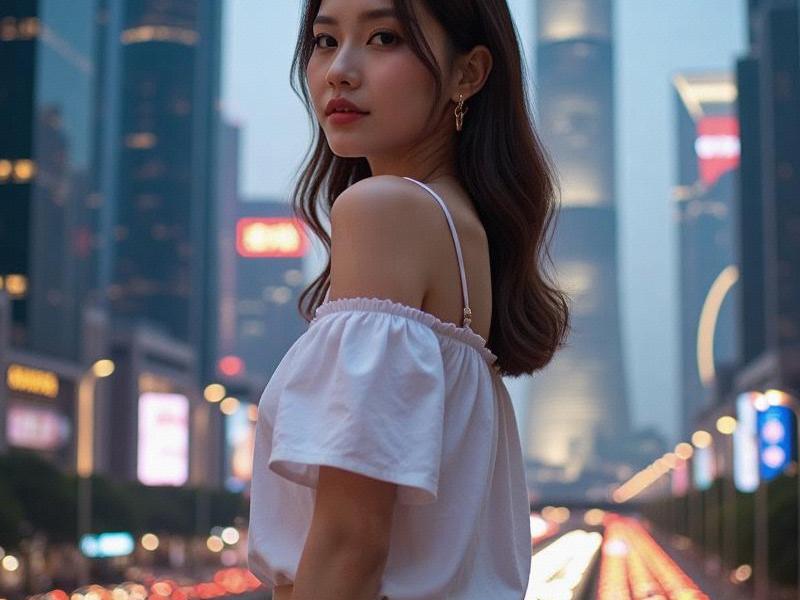This feature explores how Shanghai's women are redefining Chinese femininity through innovative fashion, digital entrepreneurship, and cultural leadership in Asia's style capital.

The streets of Shanghai tell a story of quiet rebellion. Beneath the neon glow of Nanjing Road and in the hushed galleries of the West Bund, the city's women are crafting a new narrative about Chinese femininity - one that harmonizes qipao silk with startup hoodies, traditional craftsmanship with digital innovation.
Fashion as Cultural Statement
Shanghai's distinctive style evolution becomes evident during morning rush hours. The "Shanghai Blend" aesthetic - pairing vintage Mao jackets with Balenciaga sneakers or accessorizing cheongsam with smartwatches - has gained international recognition. Local designer Xiao Xue's 2024 collection, featuring programmable LED-embedded qipao that changes patterns via app, won the LVMH Innovation Prize.
"The Shanghai woman dresses for herself first," explains Vogue China editor Margaret Zhang. "Her style combines East-West elements not as fusion, but as natural self-expression." This philosophy manifests in the 47% year-over-year growth of local independent designers, 68% of whom are female.
上海龙凤419足疗按摩 Digital Entrepreneurship Boom
Beyond fashion, Shanghai women dominate the city's tech startup scene. The "She-Economy" report shows female founders launched 42% of Shanghai's new e-commerce platforms in 2024. Platforms like Xiaohongshu (Little Red Book) have enabled micro-entrepreneurs like former finance analyst Li Jia to build seven-figure businesses selling handmade jewelry blending Suzhou embroidery techniques with modern design.
Education as Empowerment
Shanghai's female educational attainment fuels this transformation. With 73% of women aged 25-34 holding university degrees (compared to 58% nationally), the city produces tech-savvy professionals who redefine workplace dynamics. At the new AI Innovation Hub in Zhangjiang, women lead 39% of research teams developing facial recognition systems trained on diverse Asian features - challenging historical tech biases.
上海龙凤419 Beauty Standards Reimagined
The beauty industry reflects shifting values. While skincare remains paramount (Shanghai consumes 22% of China's premium skincare market), the "no-makeup makeup" trend emphasizes natural features. Plastic surgery requests have dropped 17% since 2022, with clinics reporting increased demand for treatments preserving ethnic characteristics rather than Westernizing them.
Cultural Guardianship
Amidst modernization, tradition finds new champions. Young women like ceramic artist Zhang Meili host viral workshops teaching Ming dynasty porcelain techniques through TikTok tutorials. The Shanghai Women's Federation reports 320% growth in traditional craft courses among millennials since 2023.
上海私人品茶 Social Challenges Persist
Despite progress, 2024 surveys reveal 68% of professional women still face questions about marriage plans during job interviews. The city's "Leftover Women" hotline receives 200+ calls monthly. However, new policies like Shanghai's Anti-Discrimination Employment Act (2025) show promising enforcement, with 43 companies fined for gender bias in Q1 2025.
Global Influence
Shanghai's feminine ideal now exports globally. The "Shanghai Girl" aesthetic - characterized by intellectual confidence, sartorial boldness, and tech fluency - inspires international brands. Gucci's 2025 resort collection featured collaborations with three Shanghai-based female artists, while Netflix's "Shanghai Sisters" drama series has been renewed for three seasons.
As the city prepares for the 2026 World Expo focusing on "Women Shaping Urban Futures," Shanghai's women continue demonstrating how to honor heritage while writing new rules - proving that in China's most cosmopolitan city, the future wears many faces, and increasingly, those faces are female.